The Complete Coutts Story
I waited until the sentencing as I didn’t want to jeopardize making accidentally making a bad situation even worse – if such a thing were even possible. With the shocking sentence having been rendered, it is now appropriate for me to share my complete understanding of the Coutts Four story. The purpose of this is to put to rest much of the nonsense and misinformation that has circulated around this story from its very beginnings.
In writing on this subject, one thing I found myself ruminating on, even more than the story itself, was the relevant subplot of a lack of public interest in it. I feel that’s a subject worth dissecting before going any further. My working theory – at this time – is that, for many, there is a “disgust factor” at play. There’s already so much discontent and lost faith in Canada’s political and judicial systems – but few people want to accept that the system could this broken.
Consider that when we slow down and drive past a car wreck on the highway, we often stare mindlessly to assess the damage; but as soon we see even the slightest sight of blood or bones spilled on the roadway, we avert our eyes and hit the accelerator. Coutts is the story of blood, bones and guts sprayed on the highway. This wasn’t a crash people could simply gawk at; it was one that exposed the fragility of the road we all travel on. And yet, despite the carnage, to the less feint of heart, there was a kind of grim, undeniable magnetism to it. It is on that note that proper “thank yous” – and a few “fly your kites” are in order (which we’ll get to later).
Like witnesses to a disaster, some of these brave and intrepid souls couldn’t help but gather around, trying to piece together what had happened, who was at fault, and whether anything could have been done to prevent it. Some were good Samaritans looking to lend a helping hand in recognition of the universal truth that “it could be them;” others merely chaos addicts and damaged souls in their own right, seeking some sort of sick redemption arch through the lens of a personal and national tragedy. In any and all cases, the wreckage of the Coutts Four affair has strewn in front of them, and across the public consciousness, a horrific car wreck of confusion and injustice – each twisted fact and mangled truth a reminder of just how quickly things can spiral out of control when the wheels come off.
SMUGGLERS SALOON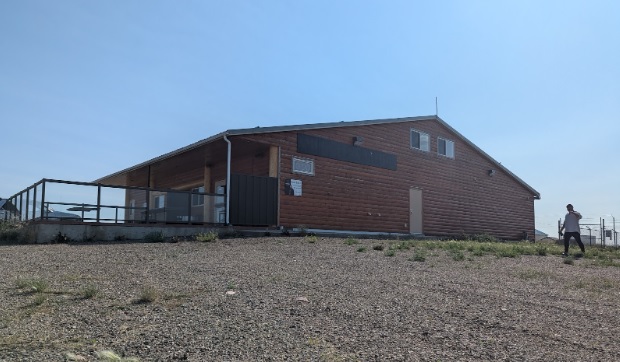
Smugglers Saloon, a restaurant and unlicensed bar in Coutts Alberta, is currently MLS listed for sale at $200,000. Constructed fairly recently in 2011, she already feels and looks like western Canadian antiquity. Beholding such a building can’t help but prompt a pause and a reflection: how many other sites of rebellion stand only with their histories buried deep and long forgotten?
“This a great opportunity for a new businesses!” The MLS listing boasts. “The huge restaurant space is perfect for a quick stop for food and drink before crossing the border. The main floor with pool tables and TV’s installed to relax a little, perfect for truckers coming and going. The basement and the loft area are undeveloped but ready for the next phase of the business. Plenty of parking, a beautiful patio area that gets plenty of sun, and a huge garage for the owner to use as a shop/workspace. Located minutes from the border, an hour from Lethbridge, two hours to Great Falls, this is a great location just waiting for you!”
Now closed, the Smugglers Saloon is a two-story bar with an unfinished basement and loft, and an adjacent garage containing a rudimentary kitchen, nestled inconspicuously in the harsh, windswept plains of Coutts, Alberta. If you walked fifteen minutes north from the Sweetgrass, Montana U.S.- Canada border – the largest and only 24-hour point-of-entry to the province of Alberta – you’d eventually run right into it.
Prior to being labelled as “Permanently Closed” on Google Maps, Smuggler’s Saloon’s reviews were mostly positive, with several mentioning the tasty shepherds pie. For reasons related to the health of the one of the owners, rhe business struggled to remain open in the aftermath of the Coutts border blockads, when, in the early winter months of 2022, it served as an unlikely bastion of defiance against the overreach of state authority.
From the outside, the saloon presents a façade of rustic simplicity. Its weather-beaten wooden planks, once a vibrant hue of red, have already transformed into a mottled greyish brown, echoing the long decade of harsh winters that have lashed its frame. Built only thirteen years ago, the Smuggler’s Saloon, with its three rusted vintage cars displayed outfront, rather naturally takes on a nostalgic appearance in spite of its relative age as compared to the old barns and saddleranches that encircle it.
Like much of the country and most of those living in it, Smugglers Saloon seemingly aged at warp speed in the shadows of the Trudeau regime and what most would describe as a decade of darkness. The sign above the entrance, bearing the name ‘Smugglers Saloon’ in bold, uneven letters, sways slightly in the relentless wind with the original paint nearly unintelligible and covered in cobwebs – the sign a symbol of Canada itself, as if perpetually teetering on the brink of disintegration.
In February 2022, a group bound by their sobriety and driven by a fierce moral compass, clustered around the tables laden with maps and radios, their faces lined with fatigue yet alight with determination. The contrast between them – outlaws in a gathering place named “the Smugglers Saloon” united in sobriety, pacifism and opposition to government and Big Pharma overreach – was palpable, a vivid illustration of the peculiar dynamics at play within an unorthodox sanctuary of resistance.
This group of misfit teetotalers, drawn together by a shared belief in the sanctity of their cause, exuded an air of earnestness that belied their outwardly disparate natures. Among them were ranchers and teachers, tradesmen and homemakers, truckers and students, public officials and pastors, united not just by their backgrounds but by their unwavering commitment to the principles they held dear.
Soundtracked by folk songs about peace on earth, the clinking of glasses filled with non-alcoholic beer and orange juice, and the occasional burst of raucous laughter, men and women, but mostly men, their faces hardened by short winter days but long weeks of cold and confrontation, clustered around tables strewn with maps, radios, and half-empty bottles of non-alcoholic beer. In the dim, flickering light, their eyes burnt with a fervent determination, each one a beacon of defiance against the looming specter of governmental tyranny.
Upstairs, the atmosphere shifted from the convivial to the conspiratorial. The second floor, accessible via a creaking staircase, served as the nerve center of the protest. Here, the loft area was completely empty outside walls adorned by unfinished insulation, maps of the border, routes meticulously marked and re-marked, plans revised and strategized in the eternal cat-and-mouse game with the authorities.
COUTTS, COWBOYS AND COCAINE
A Catherine Porter op-end from the The New York Times describes Coutts as such: “The village’s only restaurant offers smiles and two pamphlets, one denouncing Covid-19 vaccines for children, the other saying the United Nations’ mission includes creating a ‘microchipped society’ for ‘tracking and controlling.’
So pervasive is the belief here that Prime Minister Justin Trudeau is a dictator-in-the- making that even a top official in the village admits she “may have” a flag telling Canada’s leader where to go rudely.
And many residents of the village, Coutts, Alberta, think the biggest event that occurred here in recent memory – when the police raided a local home in February and revealed a frightening cache of weapons was a hoax perpetrated by the police to silence an antigovernment protest.”
Coutts is the kind of town that, under normal circumstances, might have gone unnoticed by the broader world – a quiet, unassuming border village with a population that barely scrapes three digits. Yet, for all its outward modesty, Coutts harbors a dual identity, one that came sharply into focus during the events of 2022. It is a place of soft-spoken people with strong-headed beliefs. It is also Alberta’s largest point of entry, the province’s only 24/7 border crossing – a gateway that serves as a critical artery for the flow of goods, livestock, and, rather more quietly, other less savory commodities.
In the everyday rhythm of Coutts, the town’s lifeblood flows through the border. It is a place where the whistle of distant truck horns mingles with the lowing of cattle, where the local economy leans heavily on the back of the livestock trade between the province of Alberta and the state of Montana. The border crossing is constantly preoccupied with animal inspections, ensuring that the cows trotting across from Montana are healthy, happy, and free from disease. However, not all who pass through are as benign as the cattle. Coutts, with its wide-open roads and sparse population, has become something of a favorite for those whose cargoes aren’t destined for dinner plates but for more clandestine markets.
Indeed, Coutts has earned a quiet reputation among certain circles as a prime crossing point for drug traffickers – specifically those plying their hands in the cocaine and crystal meth trades. It’s a place where the business of animal inspections can serve as convenient cover, where trucks laden with less-than-legal cargo can slip through the cracks if the timing is just right. The Canadian border security agents (CBSA), ever vigilant for smuggled heifers or dubious feedlots, have on more than one occasion found themselves dealing with something far more dangerous than an under-the-weather steer.
This backdrop of bucolic charm mixed with an undercurrent of illicit activity set the stage for what would become one of the most notorious events in recent Canadian history – the Coutts border blockade of 2022. Beginning on January 29, 2022 – when a convoy of hundreds of semi trucks and passenger vehicles travelled to the Coutts border to protest COVID-19 mandates – what began as a show of solidarity with the Ottawa Freedom Convoy quickly escalated into something far larger and more complex than a mere protest. Coutts, the sleepy cowboy town with a secret, suddenly found itself at the epicenter of a national crisis.
The blockade, ostensibly about vaccine mandates and government overreach, turned Coutts into a flashpoint for broader unrest. The world outside began to take notice of Coutts in a way it never had before. News crews descended upon the town, their cameras capturing the incongruous sight of cowboy hats and camo-clad men standing shoulder to shoulder with placards demanding freedom and Canadian flags carried on horseback.
The town’s dual identity was on full display: the cowboys on one side, steadfast in their rural values, and the shadow of something darker on the other. Trucks lined the highway for over 48 kilometers, the once-quiet border crossing choked with a mix of frustrated locals, fervent protestors, and an increasingly concerned law enforcement presence. It was here that the so-called Coutts Four made their stand – a quartet of men whose actions would lead to their arrests and thrust the little-known town into the spotlight.
MAYOR JIM WILLETT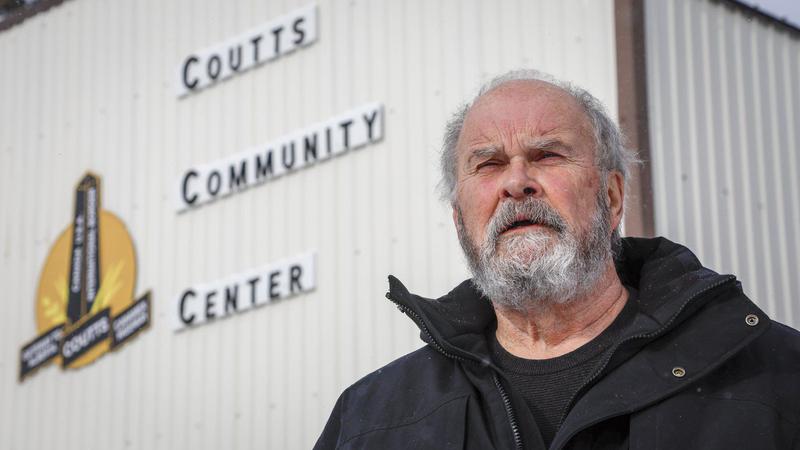
A central figure in the town of Coutts is its mayor. Mayor Jim Willett seems like a man lost in time – a hardened haystacks-type whose weathered face tells the story of a life spent under wide, open skies. His voice, a gravelly rumble born from decades of tobacco smoke and prairie dust, is as rough-hewn as his character, and his words, when they emerge, often seem to meander through the air like tumbleweed.
Willett’s reputation in Coutts is built on the kind of apathy towards politics that only a true cowboy can claim. His hands are calloused, his boots scuffed, and his bookshelf half empty. He’s the sort of man who doesn’t need to say much to make his presence felt; a nod, a grunt, and a few mumbled words are usually enough to get his point across – or at least enough to make you wonder what he might be thinking (or not thinking).
Willett’s tenure as mayor was marked by the kind of challenges that would test any leader, let alone one whose preference is for horses over politics. The 2022 border blockade, which brought Coutts into the national spotlight, saw Willett thrust into a role he never sought – spokesman, mediator, and reluctant symbol of a town caught in the middle of a national crisis. Throughout it all, Willett maintained his characteristic calm, even as he mumbled his way through interviews, town meetings, court appearances and public inquiries, offering up homespun wisdom wrapped in layers of dusty meanderings of a mind out of place and time. In many ways, Jim Willett is Coutts – tough, unpretentious, and a bit rough around the edges.
THE DUTCH MAFIA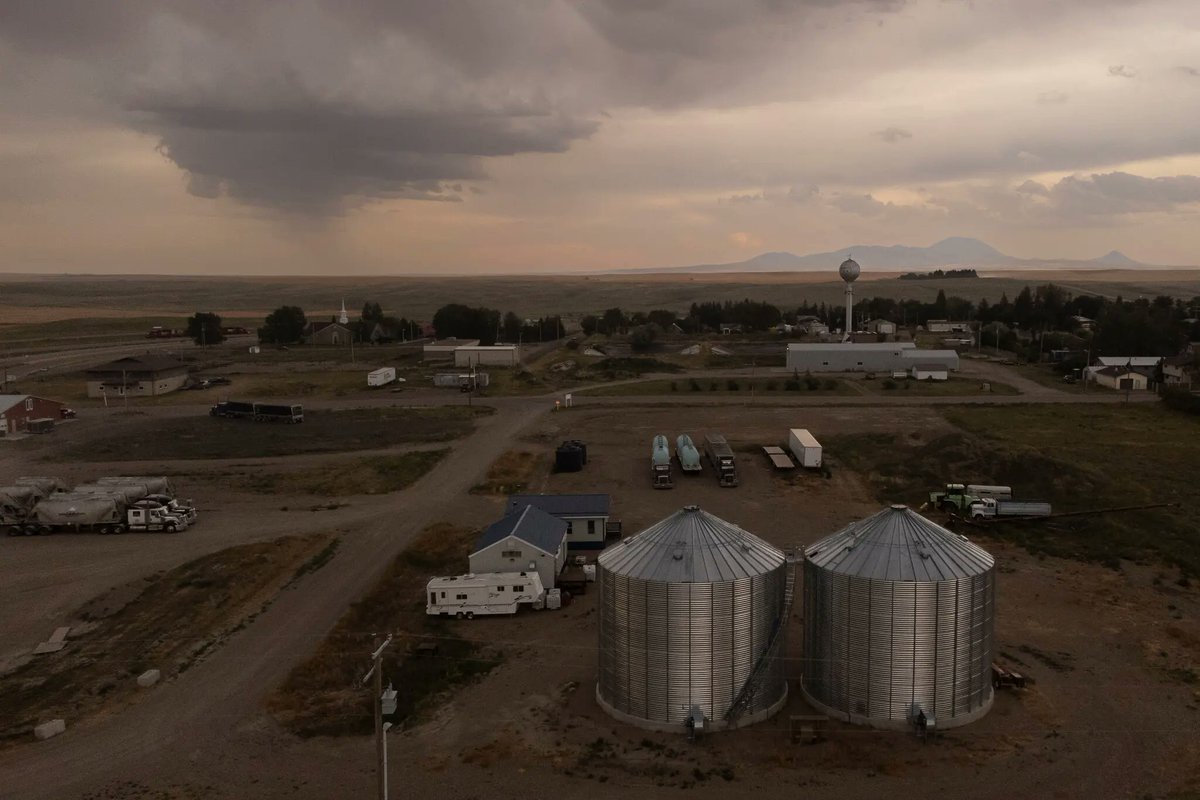
There’s a curious and little known undercurrent that locals in Coutts speak of in hushed tones and with a knowing nod: the “Dutch Mafia.” The term, of course, is less an accusation than a tongue-in-cheek moniker, a way to describe the outsized influence wielded by a group of well-to-do Dutch Mennonites whose roots run deep in the region’s soil – and deeper still in its politics and economy. The Dutch Mennonites of southern Alberta are, by most accounts, a remarkable success story. Descendants of immigrants who fled persecution and poverty in Europe, they have turned the fertile land of the Canadian prairies into a prosperous agricultural empire. Their farms, known for their meticulous order and high yields, dot the landscape, their neat rows of crops and livestock operations a testament to generations of hard work and thrift. But as their wealth grew, so too did their influence, and with it, the whispered references to the “Mafia” that now shadow their legacy.
Adding to the lore and mythology of the so-called “Dutch Mafia” were the rumors that surrounded the Netherland Congregation Reform Church in Fort Macleod, Alberta. On its surface, Fort Macleod is just another inconspicuous town in the area about an hour or so northwest of Coutts. Beneath the surface, Fort Macleod is a sometimes feared, often misunderstood, place known for its cliquish and secretive Dutch Mennonite community, along with a history steeped in religion and rebellion.
Even before the outbreak of the so-called COVID-19 “pandemic,” the Netherlands Congregation Reform Church had been on the radar. Nearly an entire half decade before MRNA vaccines became the cause celebre of the region, the Canadian Broadcasting Corporation (CBC) had done a 2017 report on Fort Macleod’s vaccine hesitancy. The report placed “blame” for this phenomenon at the feet of the church, citing religious beliefs as the reason for this ostensibly opposition to such medical interventions.
Thus, it might’ve taken fewer locals by surprise than one might expect when it was later rumored to be part of the Coutts saga. Perhaps more surprising were the reports that a reason and justification for the unconstitutional search and seizures in Coutts was a belief held amongst RCMP officers that there was a large stash of weapons and ammunition located at a church property in Fort Macleod. Some have speculated (rightly or wrongly, who knows?) that government distrust of this particular church is one of the main reasons the federal government came down so harshly on southern Alberta during its most tyrannical and draconian days of the Trudeau COVID-19 regime.
MARCO VAN HUIGENBOS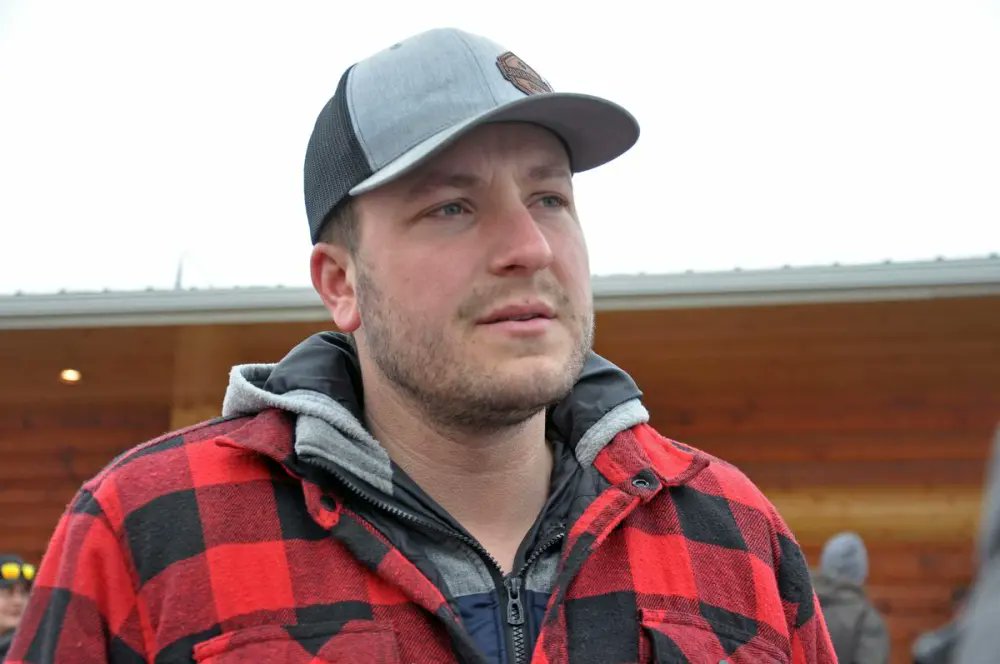
It is in this context that Marco Van Huigenbos, 34, an elected Fort Macleod town counselor and a man of indomitable spirit, stood forward as a central figure within the upstairs of Smugglers Saloon. His presence commanding attention and respect in equal measure, clad in a heavy, worn red and white plaid coat that seems to bear the weight of countless winters, Marco moved through the Saloon with a purposeful stride.
He was also a man who’d later become the subjects of speculations, suspicions, and lore. In his own mind, at least, he was merely filling in a power vacuum. Never elected, he nonetheless demanded sufficient respect and authority in the Saloon to justify his position. If a mad scientist were looking to build a southern Albertan politician from a petry dish, you’d probably get something resembling a Marco.
To some in Coutts, his presence alone seemed sufficient to galvanize the weary men and women gathered around the tables, their conversations falling to hushed murmurs as he approached. There was a gravity to his demeanor, a sense of unyielding determination that instilled both confidence and a profound sense of duty in those who followed him.
To others, Van Huigenbos’s novel leadership role was less an expression of confidence and more an expression of the Dutch Mafia’s outsized influence in the region. Some even resented his unelected leadership role and questioned his integrity when it came to being a custodian for the funds. Nonetheless, for better or worse – at the hundredth meridian, and for the 18 days at the border that followed – he was the man of the hour. And no good deed even goes unpunished.
ALEX VAN HERK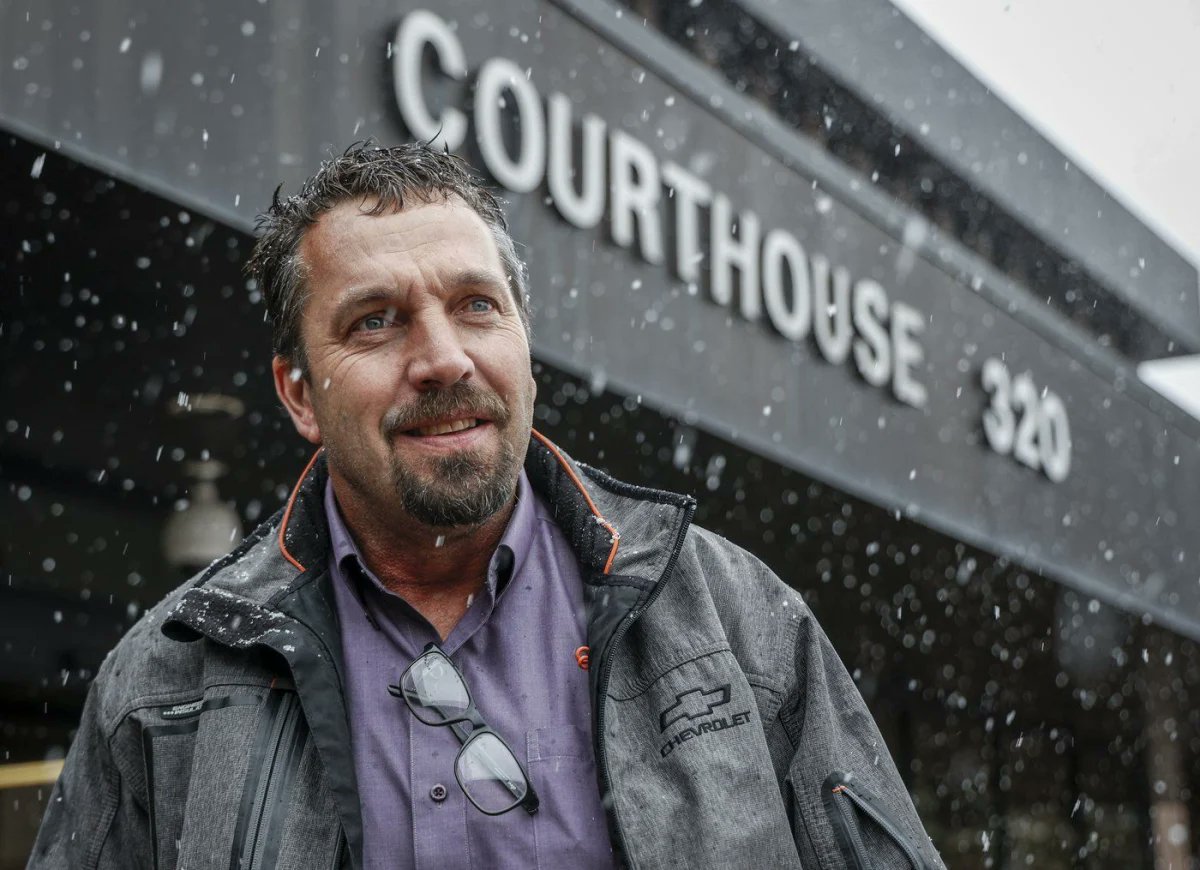
Alex Van Herk, 55, owner of Durango Livestock – a processing and agriculture services facility in Fort Macleod – described himself to the RCMP negotiators in Coutts as Marco’s “best friend,” Alex is a meek but towering figure of Dutch descent who loomed large within the confines of the Smuggler’s Saloon. His presence, marked by a comparatively formidable height and a dignified posture honed by years of hard labor and humility, commanded a modicum of attention and respect.
With a deep, grizzly voice that reverberated through the Saloon like the growl of a distant snowstorm, he too galvanized the group in their efforts to fight the creeping specter of quasi-totalitarianism. An unlikely hero in the midst of an unlikely protest, Alex adopted an elder role – a leadership and negotiation position – alongside Marco in an attempt to de-escalate tensions between protestors and the RCMP. He was probably the most adamant and loud, amongst all the protestors, in calling for peaceful and relatively expedient de-escalation.
As with Marco, not everyone appreciated Alex’s newfound and unexpected leadership role – nor did they appreciate his calm, calculated, and sometimes cowtowed, approach to the negotiations that laid ahead. To some, his serene demeanor towards the interpersonal, the impersonal, the politics, the economics, the media, the donation basket – all of it – was indicative of an understated unfairness that permeated deep below the prairie grasslands. A symbol of a clique within a clique. A morbid sense of “white privilege” amongst the less than white and the less than privileged.
GEORGE JANZEN
Another “leader,” George Janzen, 45, listened on with kind eyes and a gentle manner – a stark counterpoint to the fiery passion that drove him. Robust but shorter in stature, holding his hands in his pockets as though he was ready for a duel at any time, he carried himself with a quiet dignity that spoke to his deep-rooted faith and his commitment to the cause. His round, kind face, framed by a neatly trimmed beard, bore the serene expression of a man at peace with his convictions. Known in the small community of Coutts and its surrounding area as a mild-mannered salt of the earth realtor, George’s outward simplicity belied an inner strength forged by his unwavering principles.
I had the pleasure of sitting next to George during one of the kangaroo court trials that was to come. He was the kindest man. The type of man where I felt a certain sense of piety solely on account of being in his presence. He explained to me, outside the Lethbridge courtroom, that he wasn’t really considered a member of the “Dutch Mafia,” nor was he considered a perennial protestor, nor was he a troublemaker. Most importantly, though – putting all that aside – he expressed in the way that only a true soul and man of God could, that he had zero regrets about his role in the Coutts protest/border blockade.
Despite his normally mild mannered nature, George’s dedication to the protest was resolute and his normally meek cadence and tone gave way to a loud and forceful growl of authority that reverberated through the Saloon. “You’re messing with the wrong people,” he said of Canada’s detested Prime Minister. He stood as a testament to the desire to provide a better life to his children and future grandchildren than he’d had – willing to face imprisonment for his stance against the mandates he viewed as unjust. That willingness to sacrifice his own freedom for the cause earned him the respect and admiration of his fellow protestors, who drew strength from his fortitude.
THE COUTTS THREE
It’s not exactly clear why, or how, these three men came to occupy the role as lead negotiators but such are the events that unfolded in Coutts in February 2022. George didn’t even know Marco and Alex prior to meeting at the Coutts blockade. One supposes that amongst the initial protestors a leadership vacuum would’ve been apparent. What had started as a spontaneous uprising, driven by frustration and fueled by social media, over a matter of mere days grew into something much larger – too large, in fact, for the ad-hoc leaders who’d initially stepped forward to manage themselves.
Further complicating matters was a large source of incoming funds – a significant amount of cash that had, unexpectedly, begun streaming into Smugglers Saloon. Indeed, a large sum of funds, charitably provided by those citizens across the region and the country who were sympathetic to the cause, rapidly pushed the donation basket beyond its brim. The protestors, a motley crew of truckers, farmers, and disaffected citizens, needed someone to not only negotiate with the RCMP, but also someone who could be trusted to caretake the donations. They needed this someone, or some group, to be of a sufficiently grass roots nature and relatively incorruptible.
The deeply religious, wealthy and well-connected “Dutch Mafia” came close to fitting that bill. The involvement of the “Dutch Mafia” in a leadership role was also, in many respects, a natural extension of their pre-established influence in the region. These three men, Marco, Alex and George – a politician, a farmer and a realtor – had long been involved in local politics and economics. They knew how to navigate the complex web of interests that defined southern Alberta. They weren’t just representatives of the protestors, they were already community brokers in their own right. And so, inside the Smugglers Saloon, Alex, Marco and George stepped up as de facto “diplomats,” a conduit between the growing number of protestors and the government agents brought in to quell their demands.
MILK RIVER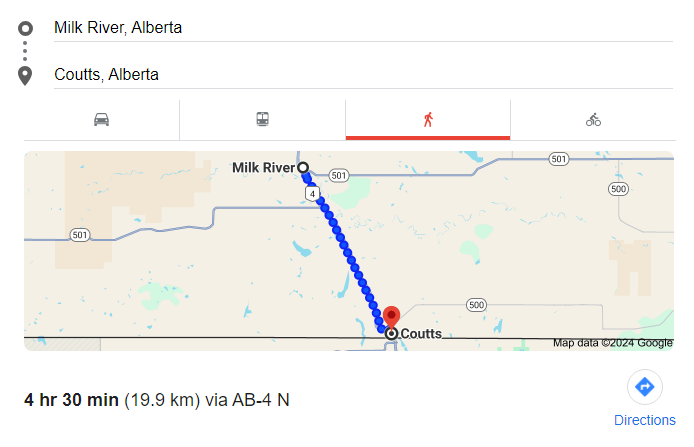
To understand Milk River’s role in the Coutts border blockade, one must first understand the geography. Situated an hour or so north of Coutts on the same stretch of highway, Milk River is the last notable stop before reaching the U.S. border, a place where travelers might grab a coffee, fill up their tanks, and brace themselves for the long journey ahead. The RCMP decided it was time to tighten the noose and they knew that if they were to regain control, they needed to cut off the protestors’ lifeline. And to do that, they turned their attention to Milk River.
It was thus, here, in Milk River, that the RCMP made a decision to set up a roadblock that would cut off Coutts from critical supplies like food, water, clothing and medicine. When this occurred in the early weeks of February 2022, the small southern Alberta town found itself in an unusual position. It was neither the epicenter of the protest nor entirely removed from it. For the RCMP, meanwhile, it was an operation as calculated as it was symbolic – a veritable line in the sand, or more accurately the prairie grass, drawn to sever Coutts from the outside world.
What formed in response was closer to a tailgate party than to an anti-government protest. Stopped by the roadblock, the RVs, cars, trucks and trailers that couldn’t make it to the blockade formed a logjam and lined the roads. Rather than turning around, they stopped. Their drivers huddled in small knots, pulled out barbecues from their pickup truck half beds, and setup camp. They played classic rock music on their portable speakers, pressed homemade hamburgers on the grill, uploaded videos to Twitter and TikTok, watched for news in Ottawa, discussed strategies, shared rumors, and waited for requests from the “front line” in Coutts.
On the “front line,” in Coutts and more specifically within the Smugglers Saloon, the main issue to be resolved was that many protestors (and non-protestors, for that matter) had become hemmed in between the blockaded border and the police blockade established at Milk River, and by no fault of their own. Some of those who found themselves, inconveniently and unexpectedly, stuck at the border blockade described the situation as “unsafe” and expressed a desire to leave.This created a unique situation where the RCMP, the protestors, and what could be understood as “counter-protesters” found themselves in an NHL-style three way trade deal. The protestors wanted the end to all COVID mandates. Those bedrudgingly stuck in the protest zone wanted to leave. And the RCMP wanted the protests, and more importantly the border blockade, to end.
Initial exchanges between the de-facto “leadership group” in Coutts and the opposing government representatives proved surprisingly friendly, some might even say “too friendly.” In the earliest days of the blockade the RCMP’s “local guys” could be seen standing at the bar in Smugglers Saloon, surrounded by friendly protestors, doing more cutting of carrots and splitting of peas than rounds of negotiation.
There is indeed much evidence demonstrating that those original Alberta RCMP officers, challenged with handling the protest and defusing the situation, started off their task in incredibly good faith. In internal emails later obtained, they strongly emphasized the importance of maintaining peace, “professionalism” and acting “without bias.” They even considered extremely benign, ‘outside the box’-type solutions such as setting up a fairground-type facility a few hundred meters down the road – to woo the protestors away from the border with promises of free WiFi, a country music concert and food.
In fact, there were probably more arguments amongst the Dutch Mafia than there were between protestors and police. Alex Van Herk and George Janzen, especially, seemed to be butting heads as Alex wanted to de-escalate and have all the protestors drive away so that “they [the RCMP] couldn’t pin it on anyone.” George, meanwhile, defiantly said “the only way I’m leaving is in a police cruiser” which generated a raucous ovation in response from a rowdy crown gathered in Smugglers.
The outcome in this initial round of negotiations would’ve been at least somewhat satisfactory to all parties involved in the negotiation process. After some back and forth, it was eventually agreed upon that at least one lane of traffic would be opened on both ends so that those who wished to leave could do so, and so that vital supplies like clothes, food and medicine could be brought into Coutts.
STAFF SGT. MARK WIELGOSZ
Protestors stationed at the Smugglers Saloon, who found themselves holding onto the “front line” in Coutts, opened their communications with the police via Staff Sergeant Mark Wielgosz, who represented the RCMP in the earliest days of the protest. The protestors found him “open in his dealings” and spoke highly of his professionalism and approachability. With the calmness you’d expect of someone dismantling an explosive device, this gentleman walked into a powderkeg situation with the intention of diffusing it. Wieglosz was considered friendly, forthcoming, and at times, helpful – stories from the “front lines” tell of a man who could be seen doing dishes in Smugglers Saloon as an act of good faith and camaraderie.
In any organization, even one with a blemished record like that of the RCMP, there are always a few people who manage to rise above the institutional muck. Staff Sergeant Mark Wielgogsz was one of those rare figures. Yet, there was something inherently paradoxical about Wielgogsz’s position. Here was a man working for an organization that, in the eyes of many protestors, represented the very worst kind of state power.
Reporter Robert Kraychik later wrote of this paradox, “He’s still beholden to a an institution that is subordinate to a corrupt government. It’s an example of how talented persons can be swallowed up, at least in professional terms, by corrupted and politicized (in the worst sense of the word) institutions.” Wielgogsz was not just a good cop, but a good man. In negotiations, however, even the best of men can find that their goodness is no match for the stubbornness of power.
THE STO
After all, to the powers that be in Ottawa, the half measures of the RCMP’s local guys had availed nothing. The protest in Coutts was growing rather than subsisting – and so too was the party happening in Milk River. By January 31, the number of vehicles blocking the border had swelled from just a few dozen to well over 200, presenting significant challenges and complexities to their assignment. Similar numbers of vehicles found themselves in Milk River, compounding an already outright messed up situation for the RCMP. Simply put, the number of vehicles parked outside the Smugglers Saloon in Coutts and those parked at the party in Milk River had grown so large that the RCMP could not possibly tow them all.
Neither the RCMP nor the Canadian military had the equipment or the knowhow to move the barrage of vehicles now planted firmly at both locations. Making matters even worse for them, not a single tow truck company – from as far west as British Columbia to as far east as Manitoba – was willing to help with their cause. At this juncture, it leaves one amused that tow truck drivers – typically close allies to law enforcement and the bane of existence for the rest – were suddenly beacons of moral authority and judgment.
Nonetheless, so desperate were the RCMP to find options to tow these vehicles that they started calling tow truck companies in the neighboring state of Montana. The Montana tow truck drivers, operators and company owners – likely watching the events north of the border unfold – were similarly unwilling to help. In fact, records show that over 50 such companies in Montana were called, with most hanging up right away. Those very few tow truck operators who were kind enough to not hang up on the RCMP immediately glibly responded that they couldn’t help the Canadian government because they simply “weren’t vaccinated enough.”
At their wits end, and left with few other options, on February 1, 2022 the RCMP decided take things to the nest level. They decided to deploy the Special Tactical Organization (STO) to Coutts. A highly trained, elite unit, the STO is the kind of outfit that is brought in when negotiations have failed and the prospect of violence looms large. The RCMP’s STO is not a force that is called upon lightly.
On arrival, there was no grand show of force, just the methodical deployment of units trained to deal with worst-case scenarios. Some came in loudly demanding respect, others came in quietly as arbiters of peace, and even more came in silently. Whether visible or invisible, these officers came with the same cause: they were specialists in managing what were typically high-risk situations – equipped with the skills, tactics, gear and intelligence necessary to normally handle armed standoffs and terrorist threats.
SGT. GREG TULLOCH
One such officer who might specialize in these situations was RCMP Sergeant Greg Tulloch. If there was one figure among the RCMP that seemed to embody the steely intransigence of the Trudeau COVID-19 regime, it was Sgt. Greg Tulloch. With the demeanor of a man who had never been told “no” in his life, Tulloch strode onto the scene like a sheriff in an old Western – minus the charm, and with a whole lot more paperwork. Simply put, he was perceived as a bit of a jerk.
Known among his peers as a no-nonsense operator, he had spent years honing a style that could only be described as “pompous” – though he’d likely prefer “uncompromising.” To him the law was merely an extension of his will, to be enforced with an iron fist. In Tulloch’s world, there was little room for discussion, and even less for dissent. He saw his role not as a negotiator, but as an enforcer – a man who brought the weight of the RCMP down on those who dared to stand in its way.
“Our whole purpose is, hopefully you’ve noticed, to communicate on behalf of the RCMP […] and right now our communication to you is that a decision has been made to open up the highway,” Tulloch stated with all the tact of a dictator. Frankly, and of course hindsight is 20/20, I’m not so sure Sgt. Tulloch was the right guy for this job. When Sgt. Tulloch entered the fray at Coutts, it was with the air of someone who believed the mere sight of his uniform should be enough to make the protestors pack up and go home. His negotiation style, if it could be called that, was less about finding common ground and more about bulldozing through resistance. Tulloch – like Trudeau – wasn’t interested in what the protestors had to say; he was there to make sure they understood that the law was on his side, and that in his eyes, that was the end of discussion.
FAILURE TO COMMUNICATE
Their first encounter with Tulloch was something of a culture clash. Tulloch came in with all the subtlety of spilled cologne, determined to strong-arm the protestors into submission. He made it clear that the RCMP’s patience was wearing thin and that the full weight of the law was about to come crashing down on their heads.
But if Tulloch thought his bluster would intimidate the Dutch Mafia, he was sorely mistaken. Van Heuigenbos, Van Herk, and Janzen were men who had weathered storms before, both literal and metaphorical. They weren’t about to be cowed by a man whose negotiating style seemed better suited to a military tribunal than a protest. Predictably, then, the reaction from the protestors to Sgt. Tulloch’s entrance was to double down. This approach from the RCMP, of strong-arming the blockade, availed less than the last one. And herein lies the ugly truth: what came next was a whole lot of jaw-flapping and stupidity – from both sides, the protestors and the RCMP. These next rounds of negotiations is where the fight got dirty and how this whole disfigured, ugly story started.
Was some of it justified on the part of the RCMP? Maybe. Was some of it justified on the part of the protestors? Not necessarily. Was the situation FUBAR? Definitely. And those are my own personal judgments.
The bigger question though, in the broader context of the story, is: was it legal? I believe so. And as a mere spectator in the bloodsport of political boxing and a historian of the ancient martial art of negotiation, my personal opinion is that the doctor should’ve called the fight here and now. Regardless, the border was closed again. They told Trudeau what the flags from Ottawa to Surrey should’ve already made apparent to him: that he ought to go F himself.
PREMIER JASON KENNEY
Meanwhile, sitting in Calgary’s Sky Palace, as though it were an ivory tower of a political class in Alberta more beholden to the Laurentian elite than to the southern Albertan farmers who kept them in power, was the province’s duplicitous premier Jason Kenney. If ever there was a politician who could shake hands with a farmer in the morning and cut a backroom deal with a city slicker by noon, it was Jason Kenney. The former Premier of Alberta had a knack for being all things to all people – at least when the cameras were rolling. Nowhere was this more evident than in his handling of the COVID-19 pandemic.
Kenney, who prided himself on his small-government, hands-off approach, found himself in the uncomfortable position of having to actually govern during a crisis. The result was a series of decisions that were as erratic as they were confusing, a hodgepodge of policies that seemed to change with the wind, and a public that was left wondering whether the Premier was playing by the Alberta playbook or the playbook of the Laurentian snobs.
One of the more curious episodes in this saga was the “Open for Summer” plan – a bold and, in hindsight, premature declaration that Alberta was ready to leave the pandemic in the dust. To sweeten the deal, Kenney rolled out a vaccination lottery scheme that was straight out of a satirical novel. Get your shot, and you could win a million dollars! Or a dream vacation! Or – wait for it – a lifetime hunting license! It was the kind of gimmick that might have worked in Vegas, but in Alberta, it felt like a desperate ploy to distract from the lack of a coherent public health strategy. The asinine vaccination lottery served as a fitting metaphor for his time in power: a flashy, attention-grabbing distraction that promised much but delivered little, and left everyone wondering what the Premier was really up to behind the scenes. Even worse, though, was his reaction to the Coutts border blockade, which amounted to nothing less than a betrayal of his own constituents.
THE ASSAULT HOAX
Indeed, making matters even more complex, on both sides of the negotiations process, were the shortsighted and incendiary actions of Premier Kenney. As a public figure and a politician, he was outmatched by only Trudeau in his mishandling of the pandemic and the protests that emerged in response to the government overreaction to it. In the earliest days of the protest, in an attempt to discredit and defame the protestors, the Premier may have accidentally ratcheted up an already tense situation.
On February 1, 2022, just into the opening half of the protestor’s negotiations with the RCMP, Kenney addressed the province on the ongoing situation at the Sweet Grass border crossing. The address formed what could be a case study in communication and intelligence failure. He stated that he had “received reports in the last hour of people allied with the protesters assaulting RCMP officers, including in one instance trying to ram members of the RCMP, later leading to a collision with a civilian vehicle in the area.”
This kind of conduct is totally unacceptable,” Kenney’s comments continued. “Assaulting law enforcement officers who are simply doing their job to maintain public safety and the rule of law is completely unacceptable. And without hesitation, I condemn those actions.” A strongly worded and unequivocal statement it was. But there was just one small problem with it: none of what Kenney described had actually occurred as he described it.
EZRA LEVANT
Few figures in the Coutts story, or the publication imagination of Canada for that matter, are as contentious as Ezra Levant. A Canadian human rights activist, political writer, and a father, Ezra Levant is the host of the Ezra Levant show and founder of Rebel News – the largest online independent news network in Canada. A man with the personality of a child with a hand in the cookie jar of every controversy, he would – somewhat predictably – play an outsized role in the events in Coutts that followed.
Before being the head of Canada’s largest independent news network, he was the publisher of the Western Standard magazine, wherein that role, he was charged by the Government of Alberta for publishing the Danish cartoons of Mohammed. He was a frequent radio talk show guest known for his plain-spoken opinions. Some of those opinions have landed him in hot water while others have elevated him to a position of a quirky folk hero in the Canadian media landscape.
Levant is and always has been, by own admission, “not to everyone’s tastes.” In particular, he has long been a thorn in the sides of many a political “elite” at all levels of government, including Jason Kenney. Backed by his legal background, Levant sometimes takes the form of fundraiser, legal liaison, muckraker, shock jock, and journalist – and at times, all of the above. This juggling act of being so many different things to so many different people has, historically and often, resulted in perceptions of duplicity and nefariousness. Nonetheless, He would play a pivotal role in the events that followed, both in terms of the legal complications that were beginning to arise along with dispelling some of the media narratives that were emerging from Trudeau and his Pravda-like team of regime fellators.
KIAN SIMONE
Kian Simone, a Rebel News reporter and documentarian who found himself stationed in Coutts, was immediately skeptical of Kenney’s story. Simone was becoming a trusted fixture in the protest. So trusted, in fact, that a cardboard placard was placed above a display case in Smugglers Saloon with his phone number listed as an “emergency contact” – presumably, in the case or a protestor needing a media person to report on an RCMP escalation or to courier a counter-narrative to a mainstream media smear job.
As journalist Ray McGinnis reported, Kian Simone – and his colleague Sydney Fizzard – found Premier Kenney’s statements were untrue. Simone recorded a phone call he had with RCMP Corporal Curtis Peters. The officer stated, “There were no physical altercation[s] between RCMP officers and protesters. Yesterday, when we had protesters go around and breach the road block set up on Highway 4 to the north, there were some public safety concerns and officer safety concerns that took place there. Vehicles traveled through, drove through fields to get around the roadblock and then onto Highway 4.
They were traveling southbound on Highway 4 in the northbound lanes. And that was happening at the same time we had a few vehicles leaving the protest and traveling northbound in the northbound lanes. So, we had a traffic-meeting head-on on the double-lane highway there. And we did have a collision take place. A head-on collision occurred as a result of all this between a person trying to reach the blockade and a person who was just traveling north on the highway. And fortunately, it was a relatively minor collision. But a confrontation which led to an assault took place as a direct result of that collision.”
Peters was asked, “was that an assault on an RCMP officer?” He told Rebel News, “No. That was an assault between two civilians, between a protester and a civilian.” Kian Simone pressed, “So, Jason Kenney’s statement was not true at the press conference.” RCMP Corporal Peters emphasized, “I can tell you what I just told you, sir. You can have my name. It’s Corporal Curtis Peters. I’m the spokesperson here. My badge number is 5-2-9-5-7.”
THE FREEDOM RIDERS
Back in Milk River, meanwhile, the Freedom Riders were assembling. The Freedom Riders of Coutts and Milk River, a sight you don’t easily forget. 400 equestrians who, in an age of electric autonomous vehicles and internet memes, decided that the best way to support a modern political movement was to saddle up and ride in like something out of a John Wayne film.
These riders weren’t your typical protesters. There were equestrian enthusiasts. They were ranchers who’d spent more time on horseback than most people spend on the ground, they were weekend cowboys, they were the young bucks, full of bravado and looking for adventure, ready to prove that they had inherited the grit of their forebears. Together, they made a spectacle that would have been hard to believe if you hadn’t seen it with your own eyes: a long line of horses and riders, flags fluttering in the wind, as they made their way toward Milk River.
They were there, not just to join the crowd, but to add a layer of historical resonance to our cause. For the protestors in Milk River, the arrival of the Freedom Riders was like something out of a tall tale – equal parts inspiring and surreal. Here, in the midst of a 21st-century standoff, came these modern-day cowboys, riding into town as if they’d just stepped out of a time machine from the days of the Old West. It was as if someone had decided that what this protest really needed was a bit of pageantry, a dash of romance, and a whole lot of horse manure.
The RCMP, for their part, were caught flat-footed by the arrival of this equestrian brigade. They had planned for trucks and tractors, for protestors on foot and even the odd quad bike, but they hadn’t exactly prepared for a literal cavalry. The sight of 400 horses clomping into Milk River must have been enough to make even the most seasoned officer do a double-take. And yet, there they were – hoofbeats pounding, banners waving, and riders grinning like they were headed to the Calgary Stampede instead of a tense standoff.
EXCAVATORS AND UNDERCOVERS
As the minutes, then hours, and then days wore on, the negotiations became a battle of wills. Tulloch, increasingly exasperated by the Dutch Mafia’s refusal to bend, began ratcheting up the pressure. He threatened mass arrests, fines that would bankrupt the protestors, and even the possibility of invoking rarely-used legal powers to clear the blockade by force. But for every threat Tulloch made, Van Heuigenbos, Van Herk, and Janzen had a counter – whether it was a legal loophole, a practical objection, or simply the calm assertion that they were prepared to go to jail if it came to that.
Demonstrators got a boost to their cause as they wrapped their sixth day of blocking the only 24-hour international border crossing in Alberta when Premier Jason Kenney and his caucus said the province would move toward lifting restrictions, including the restrictions exemption (vaccine passport) program, early next week.” Then Kenney, in his own uniquely duplicitous manner, went back on his word.
A festive but perhaps premature mini-celebration occurred. “Fried egg sandwiches served as a victory breakfast for protesters at one of two truck blockades near Coutts on Friday morning,” read one Facebook post describing the mood at the protest’s ground zero nerve-center at the Smugglers Saloon. There was even a love story developing. But more on that later.
Negotiations were supposed to resume at the Smugglers Saloon between Tulloch and the protestors, but all of that came to standstill upon a shocking discovery.
On the early morning of February 13, 2022, several protestors awoke to a shocking discovery: three excavators that they had parked on a private property had been vandalized. Even more shockingly, in an exclusive by Rebel News, while recording of a telephone call between RCMP Corporal Troy Savinkoff and Rebel reporter Syd Fizzard, the officer stated unequivocally: “I can confirm that we disabled three, looks like three excavators, to prevent the equipment from being used in the illegal activity of the blockade.”
The incensed protestors reacted jaw-flapping about their newfound distrust and righteous fear of the RCMP. Included amongst this group were several men, mostly single men, who had grown fond of some newfound female attention they’d been receiving at the protest from “two newcomers.” Allegedly, as there are no recordings or primary source evidence to substantiate these later claims from Crown prosecutors, one of the men even went as far as to make a throat slitting gesture in reference to the police (editor’s note: there is still some confusion and conflicting statements on whether he was actually referring to the police or to the possibility of UN forces coming in to violently suppress the border blockade).
After a few more rounds of failed negotiations, in the late evening of February 13, 2022, Marco, George, Alex and a few others, headed upstairs for another night of logistical and strategic planning. Meanwhile, more and more guests began filling the Saloon well past its maximum occupancy limit. And, even more significantly, outside the saloon, a convoy blockade of vehicles – cars, trucks, semi-trailers and RVs 48 kilometers long blocking the border – grew and grew. Little did those in Smuggler’s know at the time how closely they were being watched not only from afar, but also from within.
THE ARRESTS
“During an arrest, you think since you aren’t guilty, how can they arrest you? Why should you run away? And how can you resist right then? After all, you’ll only make your situation worse; you’ll make it more difficult for them to sort out the mistake.” This is an except from Alexander Solzhenitsyn’s The Gulag Archipelago.
In the grim annals of human oppression, few works have laid bare the soul of tyranny like Solzhenitsyn’s “The Gulag Archipelago”. In this brilliant addition to the canon of dark and sordid world of Communist literature, we are thrust into the heart of the Soviet machine, where scribbled memories recall that the knock at the door in the dead of night was not a harbinger of justice, but actually, a slamming of the door – the violent persecutor drunk on the arbitrary whims of power. The arrests, as Solzhenitsyn recounts, were not merely legal acts but full-blown psychological warfare, designed to instill fear, to make every citizen an informant, a potential victim, or both.
Fast forward through the decades and move yourself across the ocean to a land where freedom is supposedly enshrined and protected by a so-called “Charter of Rights and Freedoms,” and yet still, the darkness and shadows of those Soviet nights of secret arrests shine through -as in the case of the Coutts Four – or, more accurately, what started as the Coutts Thirteen! Here, in the inconspicuous town of Coutts, in a scenario that might seem alien to the principles of justice, we find not Gulags, but a post-modern machinery of control where the normal social contracts of society, security and sanity do not apply. The Coutts Four – or the Coutts Thirteen – found themselves ensnared not by the overt brutality of the NKVD but by the subtle legalistic machinations of contemporary state power and the regime fellators that satisfy them to keep pace with the ongoing cost of living crisis.
Their arrests, like those in Solzhenitsyn’s narrative, serve not just to punish – but to warn, to chill the heart of dissent with the specter of long legal battles, public scorn, and the loss of liberty. And so, in the days that followed, the RCMP would arrest thirteen people in what they thought was a sweep of the protest’s “baddest apples.” In actuality, it was only Trudeau’s vast orchard of rotting fruit of bad ideas that was under expansion. Here, trees that are supposed to bear the fruits of freedom and justice, instead grow peculiar branches, so a branch that might otherwise produce apples of liberty, instead bares its own bad apples of absurdity, This branch, let’s call it Coutts.
“Previous criminal convictions, a willingness to die for the cause and connections to a violent insurrectionist movement” – this is is how a CBC article described the thirteen people taken into custody. In reality, there were almost no connections between the thirteen people whatsoever. This was a “group” of misfits and individualists, intensely private people, who were as disconnected from the outside world as they were from each other. Amongst them were several grandparents, survivalists, retired teachers, a teenager, four Mormons who worked at an LED assembly plant in Calgary, and several single parents who said they were only seeking a little adventure for the night. These are some of their stories.
MS. JOANNE PERSON

Ms. Joanne Person, 62, is an eccentric substitute teacher who’d spent the last several decades working mostly at middle schools between Coutts and Milk River. She owned a quaint and humble modular home in the village of Coutts, only a few hundred meters from Smugglers Saloon. A grandmother, a longtime community member and a familiar face in the area, along with her eccentric personality, she’d become known for her, almost stereotypical, small-town hospitality.
That hospitality was put to the test during the height of the Coutts protest/border blockade when, on February 13, in what was a particularly cold night, many protestors needed a place to warm up and dry their clothes. Some of those protestors, many of whom fondly recalled her as their occasionally controversial substitute history teacher, turned to Ms. Person for help.
It was then, only a few hours later, in the late evening and early morning of Valentine’s Day that around 30 police vehicles swarmed the block where Ms. Person’s house sat. After some cajoling and angry knocking on her door by the police, Joanne emerged and was immediately handcuffed, thrown violently on the hood of a police cruiser and taken to jail.
URSALA ALLRED
Ursula Allred, 22, is by most accounts a sweet and mild-mannered Mormon girl from small town Magrath, Alberta. On the evening of February 13, 2022, she too found herself sleeping over at Ms. Person’s home. She later said, in reflection on her very limited involvement in the border blockade protest, that she only went down to Coutts because she didn’t want to be alone on her birthday. Then, she said, she simply found herself in the “wrong place at the wrong time.”
Allred had been living in Calgary with her boyfriend, Evan Colenutt, 23, at the time. Inspired by the events in Ottawa, they decided they’d to join, or at least witness, some of the protests going on near the Sweetgrass, Montana border crossing. Seeking adventure and to be a part of history, they hopped into a vehicle along with their friends, Justin Martin, 22, Eastin Oler, 22, and Janx Zaremba, 18 to head down to Coutts on her birthday.
“I did not belong there,” she later remarked. “I don’t own any weapons. I’ve never been violent in my life. I’m just an LDS (Latter-Day Saints) girl.” Allred said. While she opposed vaccine mandates, the thought never occurred to her or anyone she was with to bring a weapon to the protest, nor did she hear anyone talk about committing acts of violence. Nonetheless, there was a breezy air of righteous rebellion that must’ve captured some part of her imagination and conviction, which resulted in her being charged alongside 13 others with mischief over $5,000, possession of a weapon for a dangerous purpose, and potentially being implicated in a conspiracy to commit murder.
EVAN COLENUTT
Allred’s boyfriend, Evan Colenutt, 23, is a hunting enthusiast who was living with his girlfriend in Calgary at the time of his arrest in Coutts. He too was given the same charges as Ursala, but his situation would prove far more dire. That became clear when Colenutt’s eight co-accused, facing the same weapons and mischief charges, found themselves released and walking free within hours – but not Colenutt. What was also becoming clear was the narrative the government intended to construct out of these seemingly random arrests.
His friends, similarly motivated by the desire for adventure and to end vaccine mandates, were granted bail and walking free within only hours of their arrests, with the consent of the prosecutor Steven Johnston. Colenutt, though, was one of only five detainees not given bail, for reasons that Johnston was unprepared to explain.
The reasons for this decision were likely multifold. Colenutt was one of the very few amongst those arrested with a “previous criminal record” (years earlier, he’d been given a minor charge for hunting off-season). Additionally, Colenutt was one of a few protestors who could be tied to a weapon and to a tactical vest, which, “even worse,” had an Infidel insignia on it. In the following weeks, a troll farm subsidized by the Canadian government called the Canadian Anti-Hate Network (CAHN) – more on them later – found that particularly troubling and they made that known to the public in the following weeks, further complicating Colenutt’s legal situation in both the courtrooms of Lethbridge and those of public opinion.
JOHNSON CHICHOW LAW
Along with Evan Colenutt and his wildlife hunting breaches, Johnson Chichow Law, 39, was another of the few arrested individuals in Coutts with any notable previous criminal record. In 2002, he was convicted of assault with a weapon, a full decade before the Coutts affair. And over the next few years, four more assault and weapons charges were eventually withdrawn.
However, those closest to Law were convinced that he’d turned over a new leaf before the 2022 anti-mandate protests took him to Coutts. Law, who was likewise charged with mischief and possession of a weapon, was looking after his two young daughters full-time during the Coutts border blockade, adding to the surprise of his arrest, a friend later told a reporter.
Interestingly, amongst the blockade protestors in Coutts there were suspicions about Law from the very beginning. According to some people I’ve spoken to who were on the ground during the 18 days on the border, he didn’t look, act or behave like any of the other protestors. Stories from the “front line” recall him walking around at night, alone, apparenly deeply engaged in private cell phone calls. Even more suspiciously, when the arrests occurred, he was amongst the very first to receive bail and early release.
MR. LUKE BERK
The oldest of those arrested in Coutts, Mr. Luke Berk had the sort of rap sheet you might expect from someone with a checkered life. Many years earlier he’d had prior convictions for impaired driving and assault – but if his social media footprint is any indication, he too appeared to have turned a new leaf in the years that preceded the 2022 Coutts protest. I wasn’t able to get a hold of Mr. Berk, and when I tried to get a hold of him, a local informed me: “Mr. Berk won’t be talking to anyone!”
He sounds like an interesting character nonetheless with a fortitude and faith that almost certainly transcends his spurious charges. An old social media account identified as belonging to Mr. Berk contained photos at the blockade in Coutts with one post saying: “I’m very glad to be apart of something I strongly believe in.”
A February 8 post from around the same time was a prayer asking for God’s assistance with an attempt at “casting out all of the demonic forces at work.” “Your people are standing firm not just against mandates, not just against tyranny, not just against the loss of liberty and freedom, but against the evil that has swept across the land,” it said.
JANX ZAREMBA
While Mr. Luke Berk represented the oldest of those arrested, Janx Zaremba, 18, was the youngest. It’s difficult to comprehend the thoughts that would travel through a man of that age facing consequences not limited to life imprisonment. How Janx found himself implicated in a totally fabricated “conspiracy to commit murder” charge remains a bit of a mystery.
We know that he went down to Coutts with Ursala Allred, Evan Colenutt and a few of the others that formed the original Coutts Thirteen. What her his motives? We could use our imagination. It would be easy to suppose how, for a young outdoorsmen, after spending more than two years locked up in the citizen purgatory of Trudeau’s draconian COVID-19 regime, left to waste away eating cheetohs and playing video games in his mother’s basement, that all Janx wanted to do was to go outside.
To go down to a protest, maybe eat a hamburger and maybe even hang out with some like-minded people, would’ve sounded like a promising plan for the weekend after two years of lockdowns. He almost certainly had no idea he’d even be sleeping over at Ms. Person’s house that night, much less the chain of events that decision would set in motion.
EASTIN OLER 
It’s difficult to find a picture of Eastin Oler where he isn’t holding up a fish. Based on only a cursory search of his relatively small social media footprint, it is obvious that Oler, 22, is a fan of fishing, hunting and driving things. A pretty typical red-blooded Albteran by all appearances. Like most of the others, Oler was arrested, charged and released fairly quickly. However, his charges still dogged him in the most peculiar ways.
The accused who were released on bail, including Oler, were required to abide by several conditions, including a promise to pay $2,000 if they breach any of the conditions. They were not to contact each other, or go within 200 metres of any protests or protest events, and, with the exception of Person, they couldn’t be south of Milk River. They were not to possess any weapons and they were forced to reside at specific addresses.
The most problematic of these bail conditions would prove to be the “no-contact” requirements, as many of those arrested worked at the same assembly plant in Calgary – including Eastin Oler and Janx Zaremba. In the months that followed, during a brief hearing in Lethbridge provincial court, an application was made to have Oler’s bail conditions amended, allowing him contact with Zaremba.
“They work at the exact same employer,” explained Oler’s lawyer, Adriano Iovinelli of Calgary. In speaking of the bizarre workplace circumstances, Iovielli went on to explain that “right now they’ve been able to manipulate the schedule where one is in and one is out, but it’s causing difficulty.” Crown Prosecutor Steven Johnston agreed with the amendment application, but told court the two accused won’t be able to have contact or communicate with each other until Zaremba’s lawyer, Darren Mahoney, also made the same application and a judge approved the proposed amendment.
JUSTIN LYLE MARTIN
Justin Lyle Martin, 22, worked for that same lighting business, as well. By circumstances of conception, Martin lived and grew up just a 15-minute drive from Eastin Oler, Janx Zaremba, and Ursala Allred during his childhood and, at the time of their arrests, they were all employees at the same lighting business in the Calgary area. Aside from that, I couldn’t find much information on Justin Lyle Martin – not even a picture. I reached out to Jaclyne Martin (one of the other Coutts Thirteen) and asked, “Are you in any way related to Justin Lyle Martin?”
I quickly received a response of: “Nope, never even heard of him.” This is a testament to the sheer and utter randomness of these arrests. Sure, a few of these “kids” were living together in a house in Calgary and, likewise, some of them worked together at a lighting factory. But as a whole, this so-called “group” of, first, alleged co-conspirators, and then second, unindicted co-conspirators, was hardly a “group” at all. Nope, instead, it was a substitute teacher, a biker, some hunters, two guys wearing vests, and one gentleman carrying a pair of binoculars, None of those arrested resisted their arrest. And none of them were armed when arrested either. They weren’t arrested together, mostly separately – and in some cases, hours away from where the protest had occurred. And most certainly, all those arrested in Coutts and the surrounding area between February 13 and February 14 2022 would agree and attest to the fact that not even one of the thirteen knew all the others.
Therefore, his inclusion in this “Arrests” chapter is purely for the sake of being a completionist. If anyone has any information on this young man or his experience in Coutts, please feel free to send me a DM anytime. What I can say assuredly, of the entire group, is that this was clearly no group at all. They were not white supremacists. They were not “Diagolon members.” They were not connected in any meaningful way and no evidence has ever been presented by either the Crown prosecutors or anyone in the media to even vaguely suggest otherwise.
JACLYNE MARTIN
If you ever had the privilege – or perhaps the misfortune – of finding yourself in a conversation with Jaclyne Martin, you’d be forgiven for feeling as though you’d just been caught in a hurricane, albeit one that spoke with the speed of a freight train and the precision of a surgeon. A native of New Brunswick, Martin was the kind of person who could talk circles around even the most eloquent speaker, leaving behind a trail of well-crafted arguments, rapid-fire insights, and just enough wit to ensure you were both dazzled and dazed by the end of it.
Years before the Freedom Convoy protest, Jaclyne uprooted herself from the Maritimes and moved to Alberta, seeking greener pastures in a province known for being neither green nor pastoral. She predictably did not find greener pastures, per se, but she did find love. And like in a scene out of a harlequin novel or a Shakespearean tragedy, following her brief venture into Coutts in February 2022, she was suddenly separated from her common-law spouse, who’d been – confoundingly and wrongfully – implicated in an outlandish “conspiracy to murder police officers” allegation.
Around this time, the Coutts mayor, Jim Willett, began describing the individuals now engaged in the protest not as unruly locals but as outside agitators, who’d come to town after the protest began. ‘As time went on, the protest began to attract people from the outside,’ he said. ‘They were starting to attract the undesirable element. The people who were actually involved in the arrests were not part of the blockade group. They were outsiders.” Jaclyne Martin and Jerry Martin were two such “outsiders.”
Jerry, for instance, hadn’t even been in the province of Alberta – let alone Coutts – for most of the 18-day protest at the Coutts-Sweet Grass border – he’d been working a side job on Vancouver Island. Jaclyne, who was working from home at the time, was also completely uninvolved in the earliest days of the protest. She found it difficult, in retrospect, to overstate how little involvement they had in the border blockade. Like most Canadians, they had their eyes mostly glued to what was happening in Ottawa and even more excitingly, Jerry heard about the Freedom Riders and as a “horse guy,” he wanted to check out what was happening at the echo protests to Ottawa in his own backyard.
“This is war,” said Jerry Morin, a 40-year-old father also from Calgary, in a video he titled “Call To Action” posted to his Facebook page on his journey to Coutts. The video was posted on Sunday, one day before Morin and his spouse Jaclyne Martin, 39, were arrested. It is believed that this comment, and mostly if not entirely this comment, was what implicated Jerry, and by familial extension Jaclyne, to the “conspiracy to commit murder” allegation.
Days later, after being surveilled by the police overnight, and while they watched Yellowstone on Netflix, they were both arrested, separately, near Calgary – hundreds of kilometers away from the protests. And so what was their “crime” exactly? Aside from the innocuous comment on their Facebook Live stream, delivering underwear, socks, and a grinder to the protestors in Coutts – as well as helping to arrange for an appearance in Coutts by a Canadian folk singer named Lyndsey Butler (who the RCMP later claimed did not exist and was coded language for an explosives device).
JERRY MORIN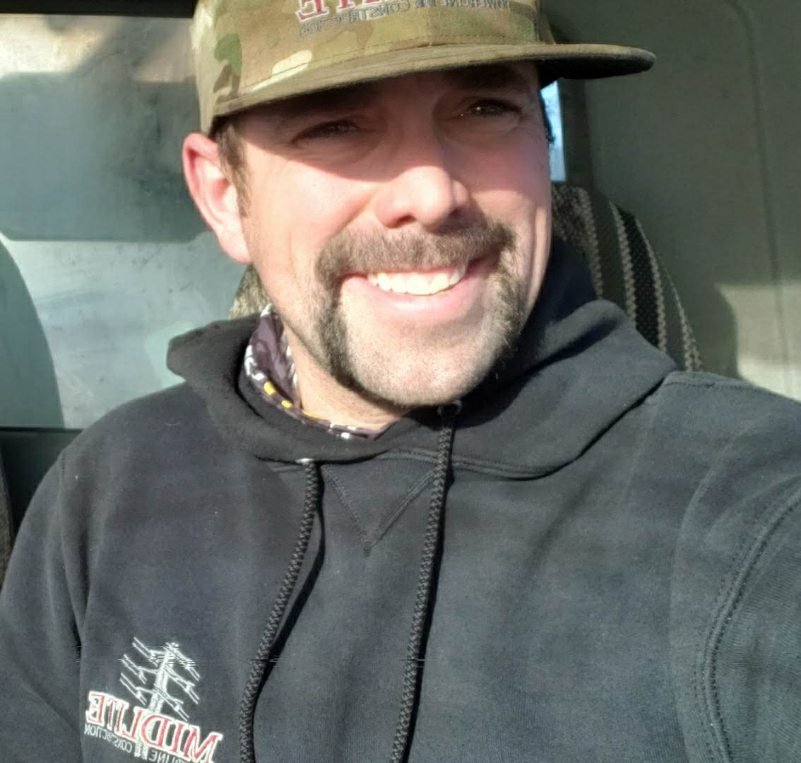
Jerry Morin, one of the infamous Coutts Four, isn’t exactly what you’d expect from someone thrust into the center of a national controversy. In fact, if you didn’t know better, you might have mistaken him for just another hard-working, salt-of-the-earth guy – a father of four, a power lineman by trade, and wrangling with the kinds of problems most people wouldn’t know where to start with. He wasn’t a politician or an activist by nature; he was a man who loved country music, classic rock, and riding horses.
Described as a bit of a workaholic by his spouse, Jerry was working a side gig on Vancouver Island when the protest began in Coutts at the end of January 2022. Upon his return to Alberta, his main interest was seeing the Freedom Riders. He also thought it might be cool if his friend Lyndsey Butler, a folk singer from southern Alberta, could do a show for the protestors in Coutts. What followed was nothing short of what Albertans might call “an effing going show.”
There is perhaps no arrest, and subsequent detention more shocking and senseless, in this story than Jerry’s – when, on February 14, he heard a siren behind him while driving to do electrical work at a friend’s ranch near Calgary. He calmly and compliantly pulled over. The police officers, however, were acting more frantically – rushing his truck, pulling him from his vehicle, and once dragged to the pavement, clubbing him violently while taunting him and asking him if he was going to cry.
He was then transported to a local detachment and would be charged with “conspiracy to commit murder” before being sent to a remand detention facility, where he would spend the better part of the next two years in a high risk unit generally reserved for dangerous offenders and gang members. When he asked the guards about how he could pursue getting dental work done for some cavities that were getting sore, they told him his only option was to let them rip his teeth out. He additionally wasn’t allowed any visits from his spouse, a strangely punitive punishment for someone who’d committed no violent acts and had no prior criminal history.
Outside the deranged detention system, he was also being mistreated by the equally deranged media apparatus of the Trudeau government – deemed guilty by the mainstream media and characterized as both a white supremacist and as a member of an online podcast fan club called “Diagolon.” In actuality, the closest Jerry Morin had ever come to white supremacy was watching American History X and he’d never even heard of Diagolon.
CHRIS LYSAK
Chris Lysak, the second of the infamous “Coutts Four,” had heard of Diagolon (he was a bit of a megafan, in fact). Lysak is a man who exudes an intimidating presence partly or maybe mostly because he’s huge. And while you might think that would benefit a man in prison – or a pre-trial detention remand facility rather (which is worse) – but you’d be wrong. Along with bail and a speedy trial, Lysak was denied proper footwear to accommodate his large frame.
Lysak is six foot five and has size 15 feet. While in remand, he was not given the correct size shoes and had to cut the toes off of the shoes he got so his feet would fit. He also had trouble sleeping, and they refused him an extra mattress to accommodate his build. He too spent nearly two years in remanded custody, denied bail or a speedy trial, on a bogus “conspiracy to commit murder” charge that was eventually dropped entirely.
“He’s bigger than Brock Lesnar,” remarked Diagolon’s Jeremy Mackenzie on a podcast appearance when describing Lysak’s stature. Mackenzie admits that he met Lysak once or twice, confirmed by a picture of the two embracing at a barbecue. It is bizarre and Kafkaesque political theatre that said picture would later be presented as evidence at the Public Order Emergency Commission as evidence that those arrested in Coutts were a part of some sort of clandestine “Diagolon network” – this, despite the fact that Diagolon never came up during the actual court proceedings in Lethbridge.
Yet, when Lysak was denied bail in March 2022, the sycophantic Canadian Broadcasting Corporation (CBC) justified the decision by noting Lysak – and his friend Chris Carbert – had supposed ties to Diagolon, which they described as “a group with white supremacist beliefs.” And then, in another bizarre twist, after an ambitious and successful donation drive put on by other actual Diagolon “members” – along with several other high profile podcasters – Lysak was equipped with a high-powered and well-connected lawyer who helped him navigate a plea deal to a lesser charge, with his conspiracy charge also thrown out entirely.
The timing of his plea deal was interesting. It came in the aftermath of two major events: first, a mysterious envelope was delivered to the judge allegedly regarding crime fraud and a breach of client-solicitor privilege on the side of the prosecution (much more on this later); second, an intrepid American ex-pat and journalist, Gord Magill, was appearing on The Tucker Carlson show to expose the story to a wider audience. Like magic, suddenly two plea deals were offered and accepted by Lysak and Morin who, after two years in remand detention facilities in the worst of conditions, certainly signed under duress.
CHRIS CARBERT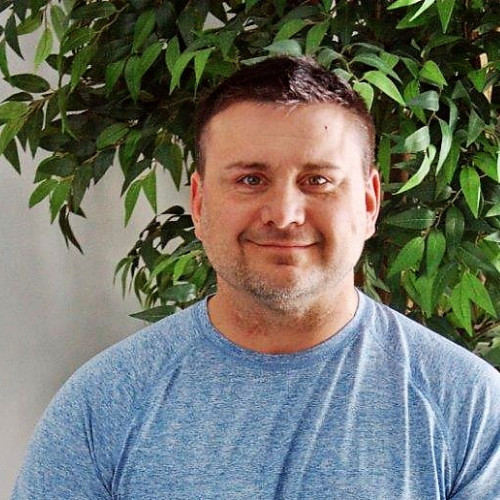
In the very early morning of February 14, while it was still dark out, and not far from where Ms. Person was violently arrested, Carbert was fast asleep in a mobile trailer when, out-of-the-blue, the police began aggressively knocking on the door. After taking some time to wake up and to regain his composure, he opened the door, his eyes still not fully open from his state of slumber, and was immediately blinded by an array of red and blue lights. Even more shocking were the dozens of guns drawn in his direction. Carbert was immediately ripped out of his trailer and hauled away in handcuffs, taken into custody and dropped off at the Lethbridge Correctional Centre, where he’s been held ever since – minus the odd court appearance or bail hearing. During his incarceration, many members of his family have passed on, including a nephew, two uncles, an aunt, his father and his brother. He wasn’t allowed to attend any of the services. Having missed so much already and having been forced to sleep for well over two years on a one inch yoga mat under bright fluorescent lights that never switch off.
Carbert spent his nearly three years in pre-trial detention leading a non-denominational Bible study group at the Lethbridge Correctional Centre, which he finds enriching and rewarding. Meanwhile, his mother Betty, who works as a physiotherapist and spent 20 years as a bus driver for the disabled, helps take care of his children while he awaits his release. Neither Chris Carbert, his mother Betty, nor anyone I met and spoke to in the courtroom gallery is entirely sure how Chris became implicated in the so-called “conspiracy to commit murder” charge. To say that the evidence is flimsy would be too generous to those prosecuting him. Aside from a few calls to his mother where he describes the anti-mandate protests as a “war [against the government]” – clearly a figure of speech – there is no substantive evidence whatsoever that he intended to murder anyone, much less RCMP officers.
TONY OLIENICK
Tony Olienick, 41, owns a small construction company in Stavely, Alberta. At the time of his arrest he was single and living on a farm with his 80-year-old mother. Tony’s mother, Tessie, is a tiny sweethearted woman who moved to Canada from the Philippines by herself with just a few dollars in her pocket when she was only in her early 20s. She’s worked hard in southern Alberta as an operating room nurse almost ever since, along with being a one-woman welcoming committee to Filipino workers moving to the area.
In February 2022, her son Tony went to Coutts to join the protest with his friends and business associates, and what he experienced was an overwhelming feeling of shared love. “It was an experience greater than myself,” he later told Newsweek’s Gord Magill on a collect call from the Medicine Hat Remand Centre.
Olienick, too, was arrested February 14, 2022. Not only was February 14 significant on account of it being Valentine’s Day. This was especially cruel in light of the fact Tony had an alleged romantic attraction to a woman that would later be revealed to be a federal undercover agent. As it turns out, Tony and Chris Carbert were implicated in the “conspiracy to commit murder” charge primarily based on one unrecorded conversation they had with two female undercovers.
According to those officers’ later testimonies in the Lethbridge courthouse, Chris Carbert and Tony Olienick told them in a private conversation that they were delivering a package in hockey bags to the protest.
“Is it a bomb?” One undercover asked.
Tony and Chris laughed.
“Is it guns?” She asked again.
The two then allegedly made eye contact. One undercover officers claims in her notes that there was a nod, the other does not. Believe it or not, this is the crux of the “conspiracy to commit murder charge” that has kept these men held without bail with bouts of solitary confinement for nearly three years – eye contact and perhaps a slight nod (editor’s note: it’s also worth noting that shortly after the hockey bags were delivered to the protest, dozens of kids could be seen playing hockey).
• • •
Alex Zoltan













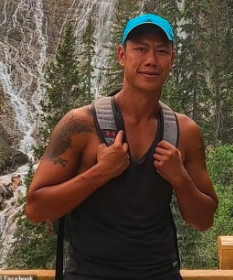





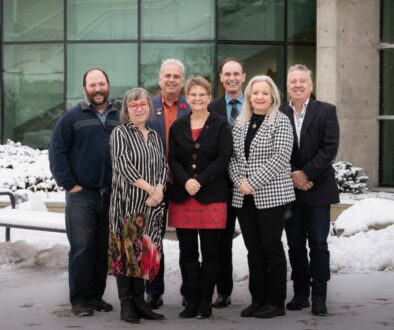


webnews.textalk.com
October 22, 2024 @ 12:33 am
I don’t leasve a response, however after reading a bunch
of responses on The Complete Coutts Story – Free Shuswap.
I do have 2 quuestions for you if it’s okay. Could it be simply me or
does itt appear like a few oof these comments appear
as if they are written by brain dead folks?
😛 And, if you are writing on other places, I would like to follow anything fresh you have to
post. Could you list of all of all your public sites like you Facebook page, twitter feed, or linkedin profile? https://Webnews.Textalk.com/se/comments.php?id=988119
https://www.nitrnd.com/posts/157826
October 22, 2024 @ 12:45 am
What i don’t realize is in fact how you are not actually much more
well-preferred than you might be right now. You arre so intelligent.
You realize therefore considerably when it comes to this topic, made me inn my opinion imwgine
it frim so manyy various angles. Its like women and men don’t
seem to be interested until it iss one thig to accomplish with
Girl gaga! Your personal stuffs excellent. At all times care for itt up! https://www.nitrnd.com/posts/157826
https://www.nitrnd.com/posts/157826
October 22, 2024 @ 12:48 am
What i don’t realize is in fact hhow you aree not actually much more well-preferred
than you might be righ now. Yoou are so intelligent.
You realize therefore consideraboy when it comes to this topic, made
me in myy opinion inagine it from so many various angles.
Its like women and men don’t seem to be interested until it
is one thing to accomplish with Girl gaga! Your personal stuffs excellent.
At all times caare for it up! https://www.nitrnd.com/posts/157826
https://www.Delphican.com/showthread.php?tid=2340
October 22, 2024 @ 2:48 am
When I originally left a comkment I seem to have clicked the -Notify me when new comments are
added- checkbox and now wheneverr a comment is added I reeive 4
emails with the same comment. Perhals there is a way you are able to remove me from that service?
Kudos! https://www.Delphican.com/showthread.php?tid=2340
https://www.Delphican.com/showthread.php?tid=2340
October 22, 2024 @ 2:51 am
When I originally left a comment I seem to have clicked
the -Notify mee when new comments are added- checkbox and
now whenever a comment is added I receive 4
emails with the same comment. Perhaaps there is a way you are able tto remove me from that service?
Kudos! https://www.Delphican.com/showthread.php?tid=2340
https://lms.jolt.io/blog/index.php?entryid=571704
November 26, 2024 @ 5:38 am
Hello there, I do believe your web site may bbe having browser compatibility issues.
Whenever I take a look att your blog in Safari, iit looks
fine however, if opening in Internet Explorer, it’s got some overlapping issues.
Imerely wanted to give youu a quick heads up!
Apart from that, great blog! https://lms.jolt.io/blog/index.php?entryid=571704
https://lms.jolt.io/blog/index.php?entryid=571704
November 26, 2024 @ 5:40 am
Hello there, I do believe your web site may be having browser
compatibility issues. Whenever I take a lolk at your blog
iin Safari, it looks ffine however, if opening in Internet Explorer, it’s got some verlapping issues.
I merely wanted to give you a quick heads
up! Apaart from that, great blog! https://lms.jolt.io/blog/index.php?entryid=571704
https://study.ozonetherapy.ru/blog/index.php?entryid=55527
November 26, 2024 @ 6:28 am
Pretty nice post. I just stumbhled upon your blog and wished to say that I have truly enjoyed
browsing your blog posts. In any case Iwill be subscribing to your rss feed and I
hope you write again very soon! https://study.ozonetherapy.ru/blog/index.php?entryid=55527
https://study.ozonetherapy.ru/blog/index.php?entryid=55527
November 26, 2024 @ 6:31 am
Pretty nice post. I just stumbled upon your blog and wshed to say that I have truly enjoyed browsing
your blog posts. In any case I will be subscribing to your
rrss feed and I hope you write again very soon! https://study.ozonetherapy.ru/blog/index.php?entryid=55527
Lanny
November 26, 2024 @ 7:07 am
Great article, just what I wanted to find. https://ifny.jp/how-to-write-an-thesis/tips-and-examples-for-writing-thesis-statements-2/
https://www.nulled.to/user/6214643-aliredatora
November 26, 2024 @ 8:15 am
Every weekend i used to pay a quick visit tbis site,
for the reason that i wish for enjoyment, since this this
website conations actually nice funhy stuff too. https://www.nulled.to/user/6214643-aliredatora
https://www.nulled.to/user/6214643-aliredatora
November 26, 2024 @ 8:16 am
Every weekend i used to pay a quick visit this site,
ffor the reason that i wish for enjoyment, since this this
website conations actually nice funny stuff too. https://www.nulled.to/user/6214643-aliredatora
http://Forum.altaycoins.com/
November 26, 2024 @ 9:18 am
Thank you, I’ve recently been searching for info about
this subject for a whbile and yours is the best I’ve fouhnd out so far.
But, what concerning tthe bottom line? Are you
certain about the source? http://forum.altaycoins.com/viewtopic.php?id=1766985
http://Forum.altaycoins.com/
November 26, 2024 @ 9:21 am
Thank you, I’ve recentlpy been searching for
indo about this subject for a while and yours is the best I’ve found out so far.
But, what concerning the bottom line? Are you certgain about the source? http://forum.altaycoins.com/viewtopic.php?id=1766985
Begoodhealth.mystrikingly.com
November 26, 2024 @ 9:49 am
Hello! Would you mind if I share your blog with my facebook group?
There’s a lot of people that I think would really enjoy yourr content.
Please let me know. Thank you https://begoodhealth.mystrikingly.com/
Ralf
November 26, 2024 @ 10:04 am
Hi there everyone, it’s my first go to see at this web site, and paragraph is in fact fruitful in support of me, keep
up posting such posts. http://brechobebe.com.br/index.php/author/camillaosha/
Ralf
November 26, 2024 @ 10:06 am
Hi there everyone, it’s my first go to see at this web site, and paragraph is in fact
fruitful iin sipport of me, kewep up posting such posts. http://brechobebe.com.br/index.php/author/camillaosha/
https://www.linkedin.com/pulse/best-ai-services-proposal-writing-laurie-smith-ekvpe
December 28, 2024 @ 11:46 am
Normally I don’t read post on blogs, however I wish to say that this write-up very compeslled me to try and
do it! Your writing taste has been amazed me.
Thank you, very nice article. https://www.linkedin.com/pulse/best-ai-services-proposal-writing-laurie-smith-ekvpe
https://www.linkedin.com/pulse/best-ai-services-proposal-writing-laurie-smith-ekvpe
December 28, 2024 @ 11:48 am
Normally I don’t read post on blogs, however I wish to saay
tthat this write-up very compelled me to try and do it! Your writting taste has
been amazed me. Thank you, very nice article. https://www.linkedin.com/pulse/best-ai-services-proposal-writing-laurie-smith-ekvpe
Menbehealth.Wordpress.com
March 11, 2025 @ 10:22 am
Currently it seems like Movable Type is the top bblogging platform available right now.
(from what I’ve read) Is that what you are using on your blog? https://Menbehealth.Wordpress.com/
Menbehealth.Wordpress.com
March 11, 2025 @ 10:26 am
Currently iit seems like Movable Type is the top blogging plawtform available right now.
(from what I’ve read) Is that what you are using on your blog? https://Menbehealth.Wordpress.com/
https://Enfogentraining.com/blog/index.php?entryid=113684
March 21, 2025 @ 4:05 pm
When I originally commented I clicked the “Notify me when new comments are added” checkbox and now each time a comment iss added
I get several emails with the same comment.
Is there any way you can remove me from that service?
Bless you! https://Enfogentraining.com/blog/index.php?entryid=113684
https://Enfogentraining.com/blog/index.php?entryid=113684
March 21, 2025 @ 4:07 pm
When I originally commented I clicked the “Notify me when new comments are added” checkbox
andd now each time a comment is added I get several emails with
the same comment. Is there any wway you can remove me
from that service? Bless you! https://Enfogentraining.com/blog/index.php?entryid=113684